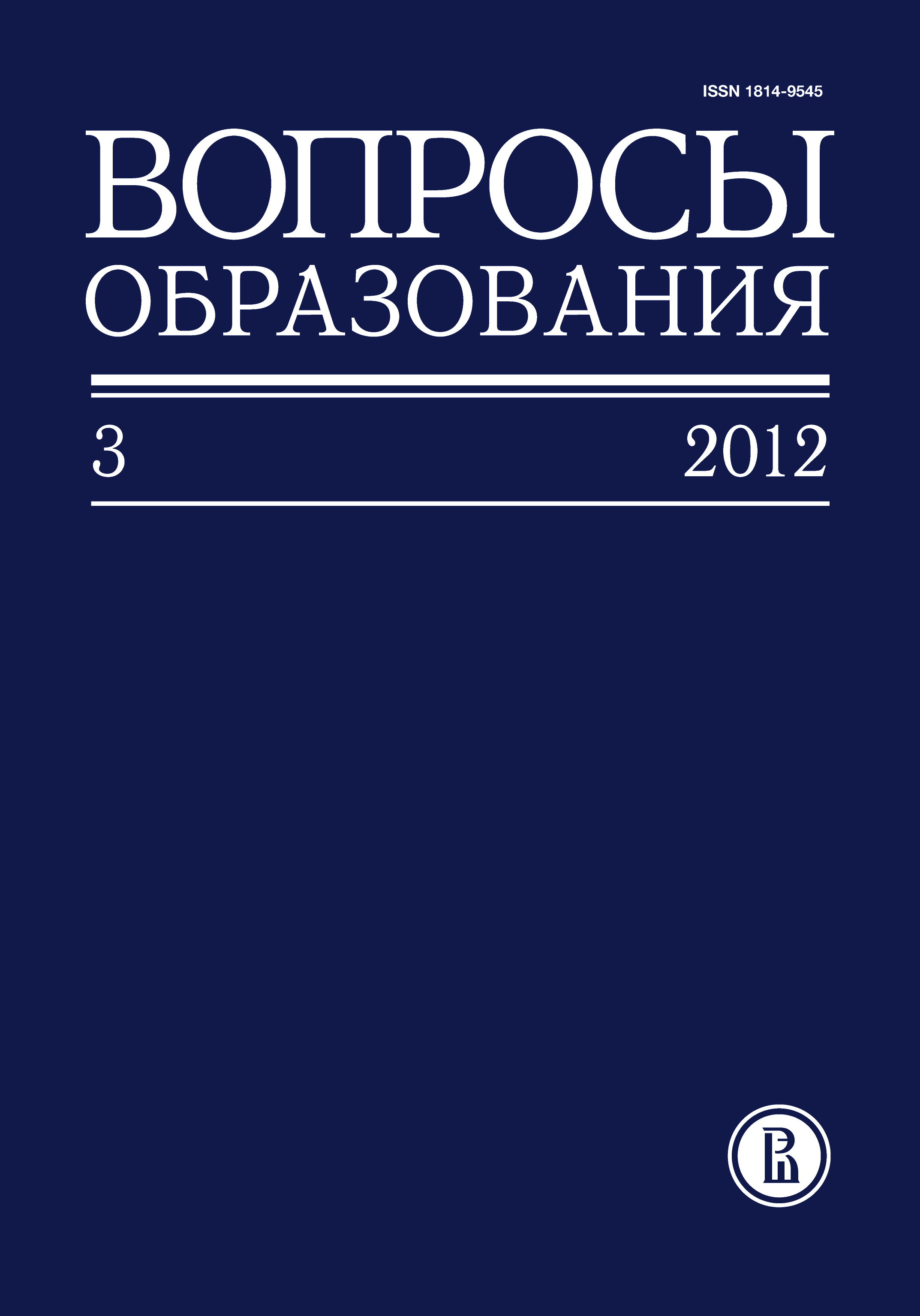Lessons of the USE as a System Project. Based on the materials of the seminar dedicated to V. Bolotov’s anniversary
Abstract
Based on the materials of the seminar dedicated to V. Bolotov’s anniversary
Speakers:
Viktor Bolotov, Vice President of the Russian Academy of Education;
Andrey Yershov, Director of the Federal Institute of Educational Measurement;
Yaroslav Kuzminov, Rector of the National Research University — Higher School of Economics;
Dmitry Livanov, Minister of Education and Science of the Russian Federation;
Aleksey Mayorov, Deputy Prorector of the National Research University — Higher School of Economics;
Pyotr Polozhevets, Chief Editor of Uchitelskaya Gazeta;
Yefim Rachevsky, Director of Moscow High School ‘Tsaritsyno 548’;
Aleksandr Tatur, Head of the Moscow Center for Quality Assurance in Education;
Vladimir Filippov, Rector of the Peoples’ Friendship University of Russia;
Isak Frumin, Director of Research and Development at the Institute of Educational Studies, National Research University — Higher School of Economics;
Valentin Shaulin, Head of Education Quality Control and Evaluation Department of Rosobrnadzor.
The speakers review how the Unified State Exam (USE) technology was developed and how the first team of developers was established. They also analyze stages and principles of holding the national testing experiment in regions of Russia and specify the factors of the project success. The experiment was aimed at creating a technology that could be applied in all regions with their specific conditions, a technology that would be trusted by most graduates and applicants, their parents, most universities and schools. Special consideration is given to misuse of the USE results, i.e. using them to create rankings of schools and educational systems in cities and federal subjects, to assess efficiency of governors, or to evaluate teachers).
The discussion reveals major advantages and benefits of the USE in comparison to the preceding graduate evaluation system. The speakers point to some errors committed during the project development and implementation and argue why so much time was required to develop and launch the project.
The top priority objectives of the USE development include improving examination materials, focusing more on the competency building approach, differentiating examinations in the Russian language and mathematics into basic and advanced levels, and providing information security.
The speakers underline the need to investigate the role and place of the USE in evaluating efficiency of teachers and educational institutions. Finally, they discuss the effects of introducing the USE as the key education reform and as a social project of the new Russia.









